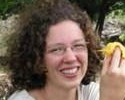HIV/AIDS
[Source: Rebecca Vander Meulen, Head of Mission, Diocese of Niassa, December 2011]

Today marks another World AIDS Day—my ninth in Mozambique. The changes since 2003 are phenomenal: from no one on HIV treatment here in 2003 to thousands on HIV treatment today. From utter amazement at the brave (and foolish?) soul who dared say she was living with HIV to a much more matter-of-fact acceptance. From almost no pregnant mother knowing her HIV status to almost every pregnant mother knowing.
But we are far from achieving today’s international theme: “Getting to Zero.” Zero new HIV infections, zero discrimination and zero AIDS-related deaths.
Scientifically and biologically, these zeros are all possible. HIV still can’t live outside the human body and has not mutated to be spread through air or water. AIDS is still a disease, not a curse, and greater understanding of the biology of HIV transmission has helped reduce fear and discrimination. Antiretroviral medications, taken at the appropriate time, in the appropriate dosage, and with appropriate medical care, mean that a person living with HIV can live a long life and die of a cause not at all related to HIV.
But the challenges extend beyond science and biology. My friends Memory and Isabel mobilized dozens of people to get an HIV test. But when they got to the clinic, they found no HIV testing materials were available. Despite a visit to the provincial health director, their local clinic still lacks these basic materials. 16-year-old Corina sought to get pregnant so she would have someone to live for—a child to call her own. Alegria wanted to use a condom with her husband, but he refused. Misinterpretation of treatment protocols meant that hospital staff didn’t give ARV medication to Candida, who was living with HIV but who was deemed not sick enough to receive treatment. Despite the persistent advocacy of her mother, Candida lost her life in April.
Getting to zero will require addressing a whole host of sociological issues. It will require both skill AND will.
Skills such as behaviour change communication, pharmaceutical stock management, and good HIV adherence do, indeed, need to be built. Much money has rightly been invested into skill-building. But skills do nothing unless they are also accompanied by the will to put them into practice consistently. Without both skill and will, little happens. We are therefore working on finding people who already have the will to get to zero, and investing skills in them. THESE people move mountains.
“How can we keep going, when the road to zero seems so steep?,” I asked Miguel and Claudio, two Mountain Mover colleagues. We can look back, and see how far we have already come, they suggested. And we can see it as a relay. We are on an ultramarathon, and we might not be the ones who reach the finish line. We are not the ones who left the start line. But we can move towards our goal, planting seeds, and pass on the work to those who come behind us. Perhaps it is those who come behind THEM who will get to zero and reap the harvest of our seeds.
Relay runner Armando lived eight years longer than he would have without antiretrovirals. And he lived fully. As president of the first association here of people living with HIV, he respectfully fought to speak out on behalf of those too ashamed to disclose their status. He brought professionalism and dignity to his work, forcing people to reassess their stereotypes of what it meant to live with HIV. I met him in 2003, and he was the first HIV-positive person I really got to know. He was very ill—close to death—until beginning ARV therapy.
Armando lost his life earlier this year after a bout with TB, despite good care on the part of the Lichinga Hospital with the limited resources they had available. Armando died because his stubborn optimism about his own health—a characteristic which he credited to keeping him alive before ARVs were available—meant that he didn’t seek early enough treatment for his TB. I am honoured to have run alongside him and to help carry his heavy baton.
Candida’s mother Elisa, who is also living with HIV, actively cares for people who are sick, breaking down stigma’s barriers and showing practical love. She lives the love she preaches, and her own health is proof that her teachings are true—that it is possible to live well with HIV. She wasn’t able to save her own daughter, but she has helped many other mothers save theirs.
Marathoners Martins and William keep hiking to remote communities—rain or shine—to bring ARV medication to people who would otherwise have to hike dozens of miles each month to get it.
Hundreds of Mozambican health officials do their jobs well, allowing medication to reach Mozambicans far from the capital city.
Taxpayers in the US and other countries fund the treatment that helps keep so many of my friends alive. Though ARV medications cost only a twentieth of what they did in early 2000, they still cost far more than any of my Mozambican friends could afford.
It seems appropriate that World AIDS Day falls into the church’s calendar during the liturgical season of Advent, the time in which we wait—for Christmas, but also for the world’s brokenness to be made whole. Because of supportive families and proper medication, many individuals living with HIV have a second earthly chance at life. (The Lazarus Effect, a thirty-minute, bears witness to the power of ARVs.) But many still die before they learn their status, others still lack treatment access, and others still face life-draining stigma. As a nation and as a world, we are not yet at zero new infections, zero discrimination, or zero AIDS-related deaths. We work for the day when our advent HOPE of zero becomes the Easter REALITY of zero.
Rebecca J. Vander Meulen
1 December 2011
Lichinga, Mozambique
Diocese of Niassa (Anglican Church)